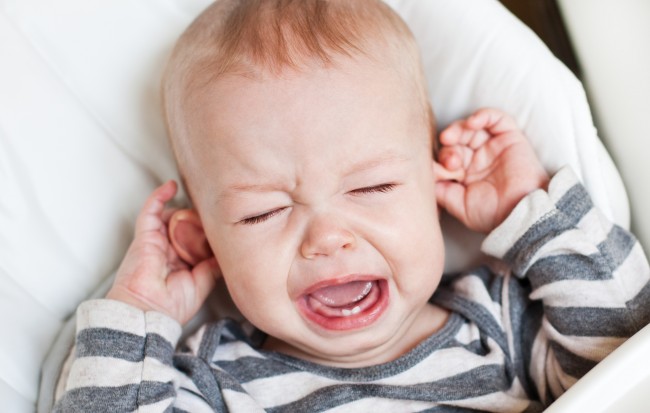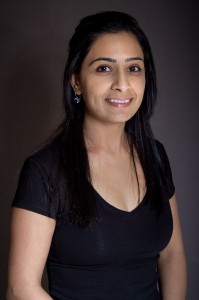Hearing is a window to the world that connects us to the sound of life and the people that fill our lives. For this reason the early detection of a hearing loss is crucial.
Language development and the ability to learn
An undetected hearing loss in a child will hamper their speech and language development as well as their ability to learn, which often leads to communication difficulties and social isolation that has the potential to leave a child bewildered and alone in a world of silence.
According to Hema Thakor, a Client Relations Executive at Oticon South Africa, a leading hearing aid manufacturer, the gap between the vocabulary of children with normal hearing and those with hearing loss widens with age. “Without intervention, children with hearing loss may struggle to catch up and therefore it is important to act early if you suspect your child has a hearing loss. The earlier the problem is identified and intervention begun, the less profound the ultimate impact will be,” says Hema.
From the womb
Infants are able to recognise familiar voices even before they are born, which is why babies get excited in the womb. “As a parent, you will expect your child to respond to your voice when you speak to them, or for them to move their head or eyes to follow the sounds they are hearing or to startle at loud sounds such as a door banging. If there is however no reaction then it would be prudent to investigate your child’s hearing,” says Hema.
Difficult to pick up
A mild hearing loss is often not picked up as it is easy to miss that a child cannot hear soft sounds. It normally only comes to light once the child starts talking between the ages of one and one-and-a-half years of age. A delay in their language development is an indicator or once they start school and struggle to hear well in the classroom.
If a parent suspects that a child has a hearing loss, they often do not know how to go about confirming it. “It can be quite a traumatic discovery and many parents spend quite some time in a state of denial, because they find it too painful to accept what is happening. It is a perfectly normal reaction, but for the sake of your child it is important to contact an Audiologist and to have your child’s hearing tested as soon as possible,” urges Hema.
Hearing loss can occur if an infant:
- Is born prematurely
- Has stayed in the neonatal intensive care unit
- Is given medications that can lead to hearing loss – ototoxic drugs such ARVs
- Has a family history of childhood hearing loss
- Has had complications at birth
- Has had infections such as Meningitis or Cytomegalovirus
- Is exposed to very loud sounds or noises even for a brief duration
When and how can a child’s hearing be tested?
A child’s hearing can be tested as early as the day they are born. In fact, the majority of medical facilities in the private sector offer newborn hearing screening programs that will test the child’s hearing before they are discharged.
In an infant the aim would be to test whether the ear is functioning correctly by objectively assessing the outer ear, middle ear and inner ear (cochlear), which means that the infant does not have to respond to the test but that the equipment utilised will determine the results.
Recommended screening technologies include oto-acoustic emissions (OAE), which assess cochlear functioning, and auditory brainstem responses (ABR), which record neural activity in response to sounds.
The tests are accurate and take one to three minutes to perform; and have the same sensation as simply putting a finger in the infant’s ear.
“A hearing loss or the degree thereof is often not diagnosedduring one assessment in infants.An Audiologist willoften at the very least repeat the same test twice or perform multiple tests to confirm results in order to ensure the reliability of the results,” says Hema.
Treatment options
There are various treatment options available, following an accurate diagnosis. “Speak to your doctor or Audiologist about optimising the hearing that your child has, to develop his or her speech and language.This could result in your child being fitted with a hearing aid or cochlear implant.
However, your Audiologist will be best equipped to advise which is better suited to your child. Remember that the road to hearing is often thwarted with emotional distress, so don’t embark upon the process alone, even parents need support,” concludes Hema.
For more information, please visit www.oticon.co.za
Latest posts by Contributor (see all)
- Video: Food allergies can cause your baby to be restless - June 27, 2014
- Boost your baby’s language skills with reading - June 27, 2014
- Top tips for your baby’s bedtime routine - June 27, 2014
-
No Comments" href="https://all4baby.co.za/newborns-0-6-months/birth-defects/429/moms-heartfelt-eulogy-four-month-old-son/">

A mom’s heartfelt eulogy to her four month old son
-
No Comments" href="https://all4baby.co.za/newborns-0-6-months/month-by-month/393/baby-four-months-old/">

Your baby at four months old



 Saving...
Saving...